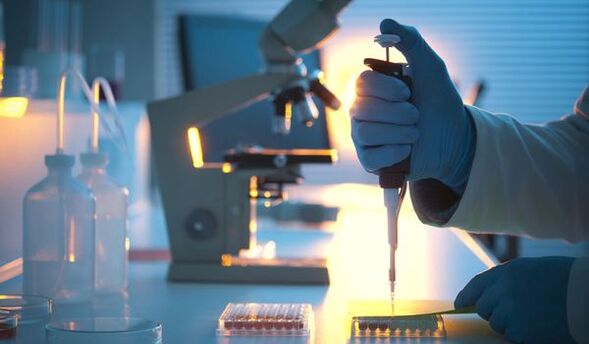Worm infestation - infection of the human body with parasitic worms - worms (helminths). The symptoms of helminth infestation are determined by the mode of infection, the number of parasites received, the degree of adaptation to the human body and other characteristics.
The first signs of the disease in adults can appear both 2-3 days after infection and after a year and a half, but usually the incubation period is 2-3 weeks.
Worms do not tend to multiply in the human body (with the exception of worms and some other worms)
Ways of infection:
- Contact the household.
- digestive;
- transmissible;
- transdermal.
The source of infection is a sick person or carrier.
Classification of helminths
In adults, parasitism of more than two hundred species of helminths has been recorded, which, according to their structural characteristics, belong mainly to two types of worms:
- Roundworms are nematodes that cause diseases such as ascariasis, enterobiasis, trichuria, trichinosis, dracunculosis, filariasis, toxocariasis.
- Flatworms are subdivided into:
- a class of films that cause teniarinhoz, tenening, cysticercosis, bifurcation, membranous peeling, echinococcosis.
- a class of bubbles that cause schistosomiasis, regression, clonorchiasis, fasciolysis, biconvex.
Depending on the characteristics of the life cycle and the transmission factors, there are three main types of helminths: geohelminths, biohelminths, contact helminths.
The effect of parasites on the human body
The vast majority of worms live in the intestines of adults, however, some types of parasitic worms in the larval stage mature in the tissues of other organs (liver, brain, heart, lungs, eyes, etc. ). In the process of helminth vital activity, toxic substances are formed that penetrate into the bloodstream and are transported by it to different organs. In addition, helminths in the human gut absorb substances necessary for life (amino acids, fatty acids, glucose, enzymes, etc. ), leading to dysfunctions in the body's normal systems.
During pregnancy, helminth infestations are doubly dangerous: the detrimental effect is reflected not only in the condition of the mother, but also in the maturation of the fetus.
Worm infestation can complicate the course of pregnancy. As a result of infection in a woman's body, the absorption of nutrients is reduced, which is extremely undesirable during pregnancy.

In addition, helminths during pregnancy can cause severe toxicity. Pin worms can penetrate a woman's genitals. This leads to intense itching and, as a result, constant discomfort and sleep disturbance.
There are helminths that can damage the intestinal wall. As a result, a small but long-term blood loss is possible. This is fraught with the formation of iron deficiency anemia in a pregnant woman.
The helminths are able to penetrate the placental barrier and parasitize the trunk and body of the fetus. In addition, they can enter the brain and lead to an increase in head size, which complicates the course of labor.
Their presence in the lungs is also dangerous - then the child will develop their chronic inflammation.
Clinic
Distinguish the acute stage of helminthic invasion, which is characterized by a more intense clinical, and the chronic, which can last for several years and manifest as deleted symptoms.
The most common symptoms of helminth infestation:
- The occurrence of dysfunctions in the digestive system, namely:
- constipation (due to obstruction of the intestinal tract, bile ducts by worms).
- loose stools (due to the effect of substances produced by helminths).
- excessive gas formation (due to indigestion).
- Joint and muscle pain - occurs when parasites penetrate the joint fluid and muscles.
- Skin symptoms (rash, eczema, itching, acne) caused by the effect of toxic substances produced by helminths.
- Nervous system disorders, expressed:
- worry;
- irritable?
- desire;
- sleep disorder etc.
- Weight loss associated with metabolic disorders.
- Catarrhal symptoms of the respiratory tract (runny nose, cough), resulting from the penetration of helminths in them.
Indirect signs of helminthic invasion:
- enlarged lymph nodes;
- increased body temperature;
- fatigue, weakness;
- nausea (may be during pregnancy, as a manifestation of intoxication).
- headaches;
- anemia (due to blood loss).
- itching in the perineum.
Diagnostics
Usually, to detect helminth infestation in adults, a stool analysis or scraping of the folds around the anus is performed. The eggs of the worms are examined microscopically and their appearance is determined.
However, this analysis does not always help to detect helminths. The most specific for helminth infestation is a blood test for the presence of antibodies to various types of worms in it. In a general blood test, when the body is infected with helminths, an increase in eosinophil and leukocyte counts is detected.

Analyzing stools alone may not be enough to identify worms during pregnancy. For a more reliable diagnosis, it is necessary to perform an ultrasound, blood test and amniotic fluid analysis.
Treatment
When signs of helminth infestation are identified and the diagnosis is confirmed by blood and stool tests, treatment is performed taking into account the type of parasite. For this, the doctor prescribes specific anthelmintic drugs. Most of the time, these drugs do not enter the bloodstream, acting exclusively in the intestines. Because of this, the possibility of toxic effects on the body is minimal.
In some cases, a single use of the drug is enough to get rid of the worms, in others, more treatment is required, made according to a single plan by a specialist.
This is a necessary condition for the disease not to take a chronic course. The main task of the repetitive course of treatment is to destroy the parasites that have entered the human body in the form of eggs and have not yet completed their life cycle. After a while, they will turn into adults and will be destroyed under the influence of drugs.
Usually, in order to achieve a good result, the whole family must be treated under the control of blood and stool tests.
Pathogenetic therapy includes anti-allergic drugs, drugs to normalize the intestinal flora.
At the same time, concomitant diseases are treated, which often develop as a complication of helminths (anemia, hypovitaminosis, malnutrition).
During pregnancy, in addition to the anthelmintic effect of the drug, its possible effect on the fetus is taken into account.
As a rule, in the first trimester of pregnancy, when the spawning of the main organs and systems of the fetus is in the stage of formation, it is better to avoid such a treatment. During this period, any medications can do much more harm to the fetus than the potential risk of worm exposure.

At this stage, you can try to get rid of parasites with the help of non-medicinal means.
Many prescriptions are known that can supplement the basic treatment and sometimes completely replace the medication. The most proven means of helminths are:
- Pumpkin seeds;
- onion;
- garlic;
- Pomegranate juice?
- tansy and wormwood decoctions.
In the second and third trimesters, the possibility of adverse effects of the drugs on the fetus and its birth is reduced.
After the end of the course of treatment, it is necessary to re-analyze for worms - scraping. This is done to make sure that the prescribed treatment is correct and that all the worms have been destroyed.
We must remember that the treatment must be carried out under the supervision of a specialist. Repeat analysis is taken no earlier than 2 weeks after the end of the treatment course. It can be considered that the course of treatment was completed with 3 negative tests with an interval of 2 weeks.
Prevention
Measures to prevent helminthiasis:
- personal hygiene measures (hand washing before eating, use of personal
- personal hygiene products, personal underwear and bedding).
- mandatory washing with water of vegetables, fruits, herbs before eating.
- complete heat treatment of meat, fish.
- control of blood-sucking insects.
- regular wet cleaning indoors.
- complete care for pets;
- regular replacement of underwear and bedding, with mandatory ironing.
- exclusion of swimming in water bodies with a high probability of helminth infection.
When planning a pregnancy, you should look for helminths. If there are, it is necessary to undergo a course of treatment before pregnancy, so as not to harm the baby's body.
Early and complete treatment of the acute form of helminthiasis is the prevention of the chronic course of the disease.








































